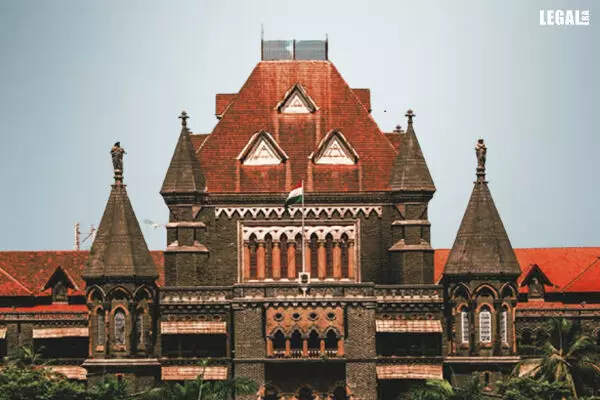- Home
- News
- Articles+
- Aerospace
- AI
- Agriculture
- Alternate Dispute Resolution
- Arbitration & Mediation
- Banking and Finance
- Bankruptcy
- Book Review
- Bribery & Corruption
- Commercial Litigation
- Competition Law
- Conference Reports
- Consumer Products
- Contract
- Corporate Governance
- Corporate Law
- Covid-19
- Cryptocurrency
- Cybersecurity
- Data Protection
- Defence
- Digital Economy
- E-commerce
- Employment Law
- Energy and Natural Resources
- Entertainment and Sports Law
- Environmental Law
- ESG
- FDI
- Food and Beverage
- Gaming
- Health Care
- IBC Diaries
- In Focus
- Inclusion & Diversity
- Insurance Law
- Intellectual Property
- International Law
- IP & Tech Era
- Know the Law
- Labour Laws
- Law & Policy and Regulation
- Litigation
- Litigation Funding
- Manufacturing
- Mergers & Acquisitions
- NFTs
- Privacy
- Private Equity
- Project Finance
- Real Estate
- Risk and Compliance
- Student Corner
- Take On Board
- Tax
- Technology Media and Telecom
- Tributes
- Viewpoint
- Zoom In
- Law Firms
- In-House
- Rankings
- E-Magazine
- Legal Era TV
- Events
- News
- Articles
- Aerospace
- AI
- Agriculture
- Alternate Dispute Resolution
- Arbitration & Mediation
- Banking and Finance
- Bankruptcy
- Book Review
- Bribery & Corruption
- Commercial Litigation
- Competition Law
- Conference Reports
- Consumer Products
- Contract
- Corporate Governance
- Corporate Law
- Covid-19
- Cryptocurrency
- Cybersecurity
- Data Protection
- Defence
- Digital Economy
- E-commerce
- Employment Law
- Energy and Natural Resources
- Entertainment and Sports Law
- Environmental Law
- ESG
- FDI
- Food and Beverage
- Gaming
- Health Care
- IBC Diaries
- In Focus
- Inclusion & Diversity
- Insurance Law
- Intellectual Property
- International Law
- IP & Tech Era
- Know the Law
- Labour Laws
- Law & Policy and Regulation
- Litigation
- Litigation Funding
- Manufacturing
- Mergers & Acquisitions
- NFTs
- Privacy
- Private Equity
- Project Finance
- Real Estate
- Risk and Compliance
- Student Corner
- Take On Board
- Tax
- Technology Media and Telecom
- Tributes
- Viewpoint
- Zoom In
- Law Firms
- In-House
- Rankings
- E-Magazine
- Legal Era TV
- Events
Bombay High Court Stays Insolvency Professional’s Suspension: Prima Facie Disciplinary Committee Can Consist only of Whole Time Members

Bombay High Court Stays Insolvency Professional’s Suspension: Prima Facie Disciplinary Committee Can Consist only of Whole Time Members
The Bombay High Court by its division judge’s bench of Justices B. P. Colabawalla and M.M. Sathaye has stayed the suspension of registration of Insolvency Professional (IP) Kairav Anil Trivedi, who was accused of misrepresentation and entering into unauthorized agreement in a Corporate Insolvency Resolution Process (CIRP).
The bench observed that prima facie, the order against Trivedi was passed by the Chairperson of the Disciplinary Committee, constituted by the Insolvency and Bankruptcy Board of India and not the Whole Time Members.
In the present case, a writ petition was filed challenging the order dated 23 May, 2023 passed by the Disciplinary Committee, constituted by the Insolvency and Bankruptcy Board of India (for short IBBI) under Section 220 of the Insolvency and Bankruptcy Code, 2016 (for short IBC,2016).
The learned Counsel appearing on behalf of the Petitioner- Kairav Anil Trivedi took strong objection to the jurisdiction of the authority passing the impugned order. He submitted that under the provisions of Section 220 of the IBC, 2016, it is the IBBI which constitutes a Disciplinary Committee to consider the reports of the investigating authority submitted under sub-section (6) of Section 218.
It was submitted that the proviso to 220(1) of the IBC, 2016 makes it clear that the members of the disciplinary committee shall consist of Whole Time Members of the IBBI only. The Counsel brought attention of the Court towards the definition of words “Disciplinary Committee” defined in the Insolvency and Bankruptcy Board of India (Inspection and Investigation) Regulations, 2017, which stipulates that a Disciplinary Committee means a Committee of Whole Time Members constituted by the Board under Section 220(1) of the IBC,2016.
The learned Counsel submitted that the order passed on 23 May, 2023, and which was impugned in the present Petition, was not passed by the Whole Time Members but in fact by the Chairperson of IBBI.
In support of this argument, the learned Counsel brought attention towards the Website of IBBI in which it is clearly stated that Shri. Ravi Mital is the Chairperson of IBBI and Shri. Sudhaker Shukla and Shri Jayanti Prasad are its Whole Time Members.
The learned Counsel submitted that the impugned order in the present case was passed by Mr. Ravi Mital who is the Chairperson and not a Whole Time Member. He therefore submitted that the order impugned in the present Petition was thus, without jurisdiction.
The Court from perusal of Section 220 of the IBC, 2016 read with definition of the words “Disciplinary Committee” in the Insolvency and Bankruptcy Board of India (Inspection and Investigation) Regulations, 2017, prima facie was of the opinion that the Disciplinary Committee can consist only of Whole Time Member(s), who can then pass orders.
The Court noted that, “In the present case, the impugned order dated 23.05.2023 is passed by Mr. Ravi Mital, who, at least on the Website of the IBBI, is shown as the Chairperson of the IBBI and not its Whole Time Member.”
In view of the same, the Court granted ad-interim relief thereby restraining and injuncting the Respondents- Union of India from in any manner acting upon or giving effect to or implementing the impugned order dated 23 May, 2023 and the Show Cause Notice dated 21 March, 2023 and stayed the operation, effect and implementation thereof till IBBI files a reply in answer to the petition.


